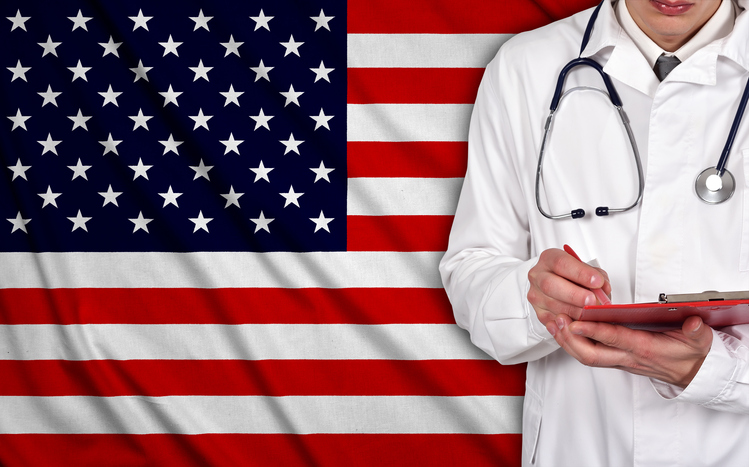US Clinical Experience (USCE): What Counts and What Doesn’t?
Whether you’re a brand new International Medical Graduate (IMG) who is fresh out of medical school or a practicing doctor with 30 years under their belt, all IMGs must face the matter of US Clinical Experience (USCE). Out of the many factors you will have to consider for your residency application preparations, US Clinical Experience can be the most fruitful, but also the most frustrating. You may be well-researched and have lots of work experience in countries outside of the US, but US residency programs want to see evidence you can handle yourself in a US medical environment.
Navigating the ins and outs of USCE can be difficult, and you may have many questions. Below are the answers to the Top 3 Questions about US Clinical Experience.
What is US Clinical Experience (USCE)?
US Clinical Experience (USCE) is defined as hands-on experience working with patients conducted in a US medical environment.
What is usually considered USCE is:
- Externships
- Clerkships (Any clinical rotations completed in the US or Canada)
- Sub-internships (Sub-I)
What is not typically considered USCE is:
- Observerships/Shadowing
- Volunteer Experiences
- Research Experiences
- Experiences in similar medical environments (such as England)
How do I get US Clinical Experience (USCE)?
Unfortunately, this is not a very straightforward answer. There are several methods residency candidates can use to inquire about getting USCE. All of the methods have varying levels of efficiency and success rates and require residency candidates to be careful as they move forward.
These methods include (but are not limited to):
- Contacting Hospitals for Direct Placement – This option is not always as cut and dry as it may appear. Many hospitals do not provide Externship experiences. Or, they have put their experiences in the hands of paid services to dole out. However, you lose nothing for inquiring politely if the program or affiliated hospital offers any amount of Externships or work experiences.
- Using a Paid Placement Service – This is the most common form of acquiring US Clinical Experience. There are many services that will help IMGs get placed in USCE experiences. Be sure to research any potential service very carefully to ensure they are providing the type of worthwhile experience you are looking for by contacting them directly, asking lots of questions, and reading reviews.
- Keeping an eye on residency forums – Every once in awhile, hospitals or programs may offer experiences on residency or USMLE forum sites. This is a fairly rare occurrence though and is mostly unreliable.
- Private or Personal Connections – Some residency candidates contact medical professionals in their network to arrange rotations or an Externship in a hospital.
Is USCE Required by Residency Programs?
The benefits of USCE are practically limitless. Having any amount of USCE in your ERAS Application can go a long way to show programs you understand the pressures of a US medical environment, continued to stay relevant in the medical field and also gives you the opportunity to get new, US-based Letters of Recommendation (LoRs) and connections in the US medical world.
Having USCE will also increase the number of residency programs IMGs qualify to apply to. Some residency programs do not require any amount of USCE to apply, but other requirements you may come across are:
“No, not required, but preferred.”
Some residency programs will not fully require any USCE, but they may place applicants with USCE above those that do not have any.
“Yes, some USCE is required.”
In this case, a program isn’t too concerned about how much USCE you have, as long as you have any amount of USCE.
“Yes, a specific amount is required.”
Often times, if a program requires USCE, they will have a set amount they want to see. For example, a program could require as little as a 1 month, or as much as 12 months.
Other Frequently Asked Questions:
- Are Observerships considered USCE? While there are a small handful of programs that count Observerships as US Clinical Experience. For example, currently, the Emory University’s J. Willis Hurst Internal Medicine Residency Program (Source) accepts Observerships. But, this is incredibly rare. Generally, most residency programs do not count Observerships as USCE.
- I am a Caribbean medical graduate, do the clinical rotations I performed during my time in medical school count as USCE? Yes, as long as your rotations were in the US, they count as USCE. However, the farther out you get from graduation, the more you might need to get more USCE. This helps prove you are still relevant in the medical field.
- There is no way for me to get USCE, is there anything else I can do? Since USCE can be difficult to secure, there are other experiences you can complete to continue adding to your ERAS Application such as research, Observerships, publications, or volunteer work.
- Where do I learn about program’s USCE requirements? Match A Resident provides US Clinical Experience requirements as part of the core filters and information offered for every program in the database.


